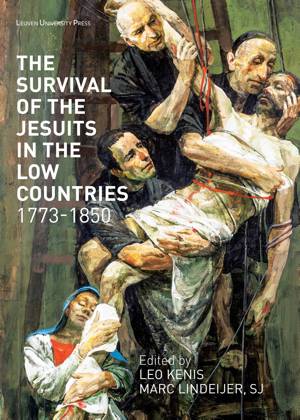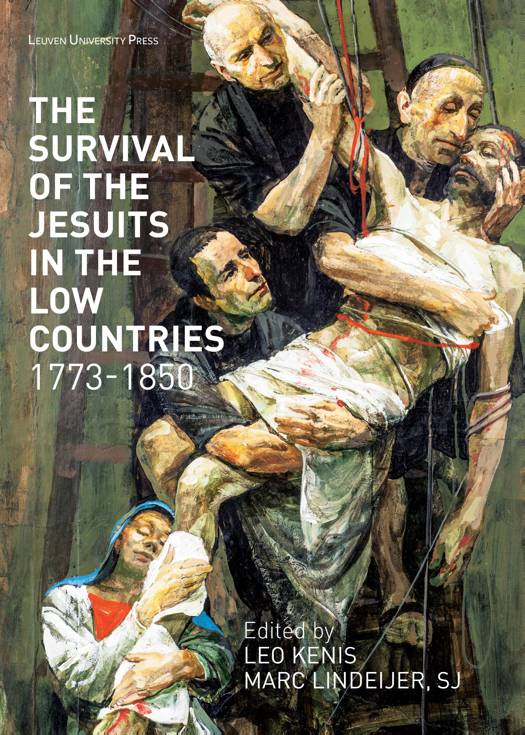
Door een staking bij bpost kan je online bestelling op dit moment iets langer onderweg zijn dan voorzien. Dringend iets nodig? Onze winkels ontvangen jou met open armen!
- Afhalen na 1 uur in een winkel met voorraad
- Gratis thuislevering in België vanaf € 30
- Ruim aanbod met 7 miljoen producten
Door een staking bij bpost kan je online bestelling op dit moment iets langer onderweg zijn dan voorzien. Dringend iets nodig? Onze winkels ontvangen jou met open armen!
- Afhalen na 1 uur in een winkel met voorraad
- Gratis thuislevering in België vanaf € 30
- Ruim aanbod met 7 miljoen producten
Zoeken
The Survival of the Jesuits in the Low Countries, 1773-1850 E-BOOK
€ 41,00
+ 41 punten
Omschrijving
In 1773, Pope Clement XIV suppressed the Society of Jesus. For the 823 Jesuits living in the Low Countries, it meant the end of their institutional religious life. In the Austrian Netherlands, the Jesuits were put under strict surveillance, but in the Dutch Republic they were able to continue their missionary work. It is this regional contrast and the opportunities it offered for the Order to survive that make the Low Countries an exceptional and interesting case in Jesuit history.
Just as in White Russia, former Jesuits and new Jesuits in the Low Countries prepared for the restoration of the Order, with the help of other religious, priests, and lay benefactors. In 1814, eight days before the restoration of the Society by Pope Pius VII, the novitiate near Ghent opened with eleven candidates from all over the United Netherlands. Barely twenty years later, the Order in the Low Countries - by then counting one hundred members - formed an independent Belgian Province. A separate Dutch Province followed in 1850. Obviously, the reestablishment, with new churches and new colleges, carried a heavy survival burden: in the face of their old enemies and the black legends they revived, the Jesuits had to retrieve their true identity, which had been suppressed for forty years.
Just as in White Russia, former Jesuits and new Jesuits in the Low Countries prepared for the restoration of the Order, with the help of other religious, priests, and lay benefactors. In 1814, eight days before the restoration of the Society by Pope Pius VII, the novitiate near Ghent opened with eleven candidates from all over the United Netherlands. Barely twenty years later, the Order in the Low Countries - by then counting one hundred members - formed an independent Belgian Province. A separate Dutch Province followed in 1850. Obviously, the reestablishment, with new churches and new colleges, carried a heavy survival burden: in the face of their old enemies and the black legends they revived, the Jesuits had to retrieve their true identity, which had been suppressed for forty years.
Specificaties
Betrokkenen
- Uitgeverij:
Inhoud
- Aantal bladzijden:
- 392
- Taal:
- Engels
- Reeks:
Eigenschappen
- Productcode (EAN):
- 9789461663191
- Verschijningsdatum:
- 10/12/2019
- Uitvoering:
- E-book
- Beveiligd met:
- Digital watermarking
- Formaat:

Alleen bij Standaard Boekhandel
+ 41 punten op je klantenkaart van Standaard Boekhandel
Beoordelingen
We publiceren alleen reviews die voldoen aan de voorwaarden voor reviews. Bekijk onze voorwaarden voor reviews.










